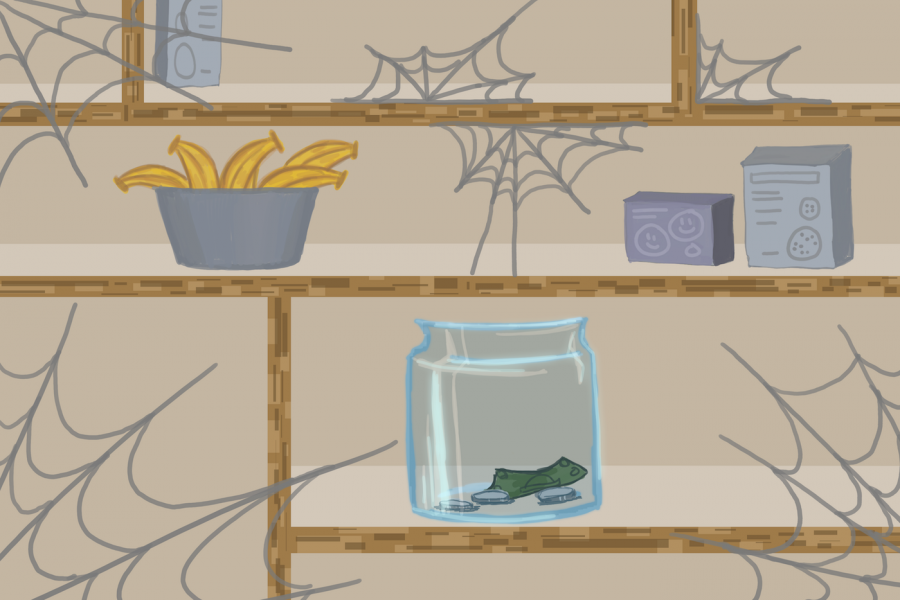Give UT Outpost more funding
November 25, 2021
According to a 2020 survey, 42 percent of UT students experience food insecurity — a startling statistic that makes the UT Outpost a critical resource for vulnerable populations on-campus.
The UT Outpost is housed within Student Emergency Services and provides students free access to professional clothes and essential food pantry items. This helps combat food insecurity and hunger issues on campus as well as addresses barriers to professional job-seeking opportunities. The UT Outpost should receive additional monetary support from the University to assist in its mission of supporting our campus’ most vulnerable populations.
While it’s often taken lightly that college students will pounce on any opportunity for free food, there is a dark side to this common joke. For many, food insecurity is a harsh reality that can lead to poor grades, take a toll on physical and mental health and threaten to widen the educational gap.
In addition, COVID-19 has exacerbated college hunger disparities, with pandemic-related shutdowns causing the rate of food insecurity to nearly double in some states. As college graduates go on to attain higher salaries than nongraduates, it is essential that students — especially those from underrepresented communities — are provided additional support to attain their academic goals.
Oliva Costa, a Middle Eastern studies senior, has faced instances of food insecurity during her time at UT and was not aware of the resources that the UT Outpost offers until recently.
“I wish I knew about it because then I would have used it,” Costa said. “I’ve eaten yogurt for four days because I couldn’t afford to get groceries.”
If students are not even able to nourish their bodies and minds with food, it is unreasonable to expect them to be able to engage with and participate in their college courses. Food that is healthy and nutritious is critical during the developmental years of college, and UT Outpost can help provide this. Students already face steep costs in paying for books, housing and tuition. Food is an essential need where the University should step in to ensure the health and wellbeing of its community.
Valeria Martin is the Student Emergency Services Coordinator for UT Outpost. She oversees its day-to-day operations and works with student volunteers and interns.
“We do rely on a lot of donations, so … we are able to be sustainable because of that,” Martin said.
The University allocates a certain amount of funding for the Outpost; however, the initiative is overwhelmingly sustained by food and clothing donations. This needs to change. UT needs to ensure its students have consistent access to food.
“My biggest thing is being able to give information to folks about this resource and really ensuring that folks know it’s open to all students; there’s no criteria to be met or shown to be able to access the Outpost,” Martin said.
By increasing funding to the UT Outpost, its services could be expanded while increasing awareness about the program so that students like Costa don’t fall through the cracks. These services could include providing guidance in filling out paperwork for government assistance programs such as the Supplemental Nutrition Assistance Program, which provides benefits to supplement grocery purchases.
The University has an important role and responsibility in combating the issue of food insecurity in our community, and that involves raising awareness of UT Outpost’s current resources as well as allocating funds to bolster the program’s services.
Raghu is a Plan II, Middle Eastern studies and Arabic senior from Coppell, Texas.



